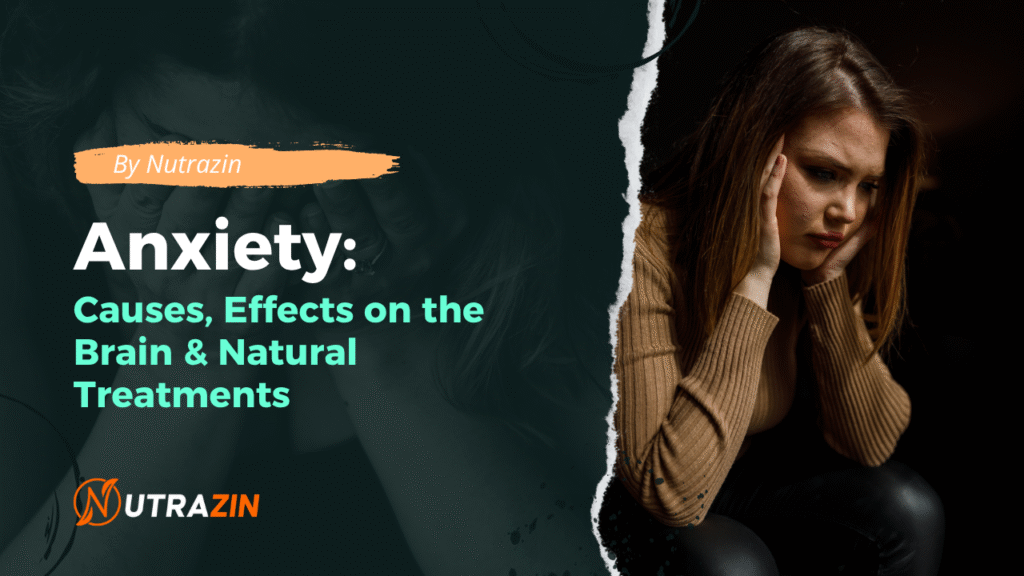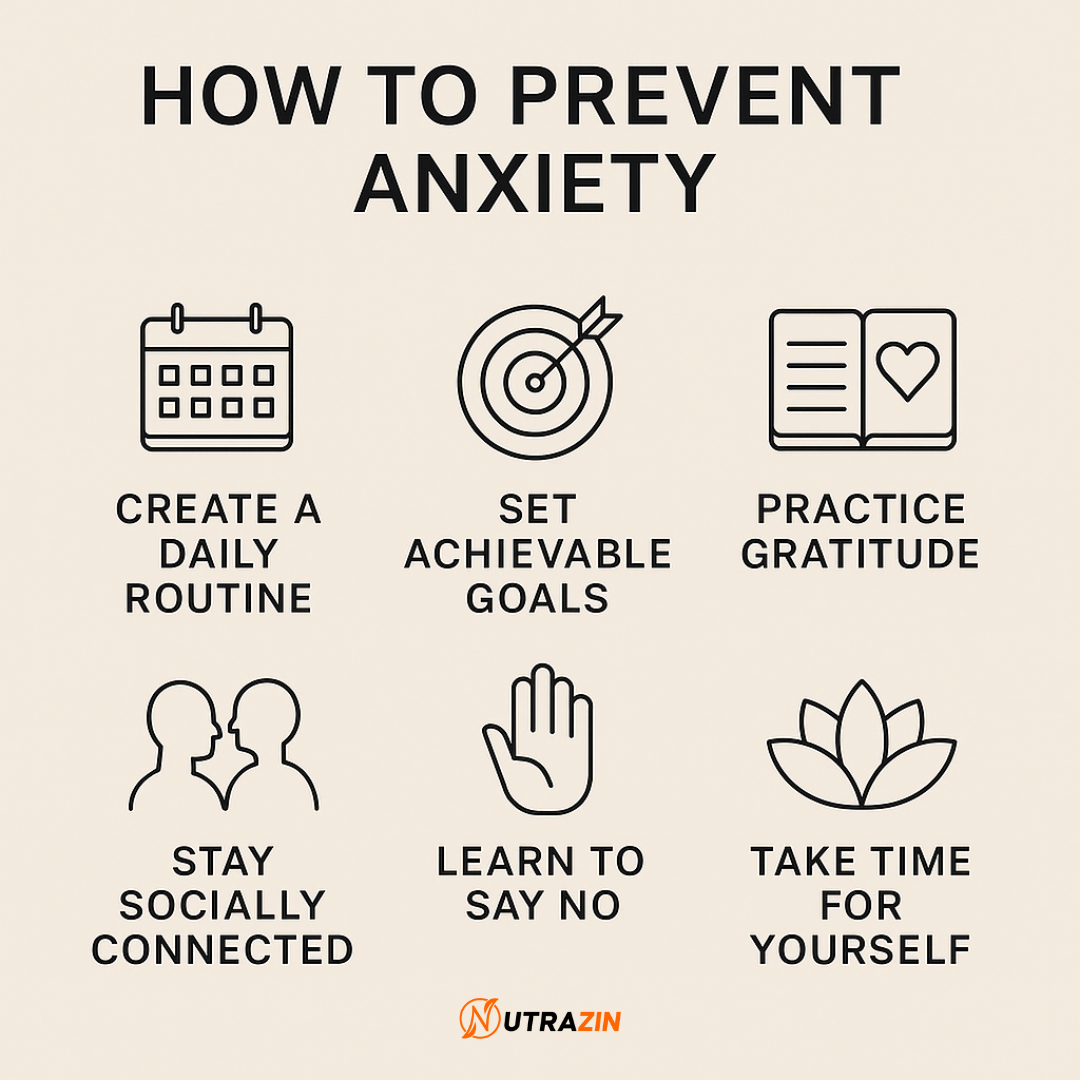
Introduction
In today’s fast-paced and high-pressure world, anxiety has become one of the most common mental health challenges. While a little stress before an exam or big event is natural, chronic anxiety can significantly disrupt your daily life and well-being.
This blog explores what anxiety really is, what causes it, how it affects your brain, and effective ways to manage or treat it naturally.
What is Anxiety?
Anxiety is a psychological condition characterized by persistent worry, nervousness, or fear that is excessive or out of proportion to the situation. It can affect thoughts, emotions, and even physical health. While occasional anxiety is normal, chronic anxiety can become a mental disorder requiring treatment.
Common Causes of Anxiety
- Chronic stress: Workload, relationship issues, financial pressure, or academic expectations.
- Trauma: Past experiences such as childhood abuse, loss, or emotional neglect.
- Genetic factors: Family history of anxiety, depression, or other mental illnesses.
- Brain chemistry: Imbalances in neurotransmitters like serotonin, dopamine, and GABA.
- Poor lifestyle habits: Lack of sleep, unhealthy diet, and sedentary living.
- Substance use: Overconsumption of caffeine, alcohol, or drugs.
- Overstimulation: Excessive screen time, social media pressure, and negative news exposure.
How Anxiety Affects the Brain
Chronic anxiety impacts various parts of the brain in the following ways:
- Amygdala overactivation: The brain’s fear center becomes hyper-responsive, increasing fear responses.
- Reduced hippocampus size: This area controls memory and learning; anxiety may impair its function.
- Increased cortisol levels: Chronic stress hormones can damage neurons and brain structure.
- Disrupted decision-making: Anxiety affects the prefrontal cortex, reducing rational thinking and control.
- Creates a feedback loop: The more anxious you feel, the more the brain is conditioned to remain in a state of alert.

Symptoms of Anxiety
- Constant worry or restlessness
- Racing heart or shortness of breath
- Difficulty sleeping or staying asleep
- Irritability or mood swings
- Trouble focusing or feeling mentally blocked
- Fatigue or feeling mentally drained
- Muscle tension or headaches
- Digestive issues or appetite changes
Natural Ways to Manage Anxiety
1. Lifestyle Changes
- Maintain a regular sleep schedule
- Exercise at least 30 minutes daily
- Reduce screen time, especially before bed
- Avoid caffeine, nicotine, and alcohol
- Eat a nutrient-rich diet including leafy greens, seeds, and omega-3 sources
2. Mindfulness & Relaxation
- Practice meditation or deep breathing exercises
- Try yoga or light stretching
- Engage in hobbies or creative activities
- Take digital detox breaks regularly
3. Herbal and Natural Remedies
- Ashwagandha: An adaptogenic herb that helps reduce cortisol
- Brahmi and Shankhpushpi: Known for calming and enhancing cognitive function
- Chamomile tea: Promotes relaxation and better sleep
- Essential oils: Use lavender or sandalwood oil for aromatherapy or massage
4. Professional Help
- Cognitive Behavioral Therapy (CBT): Helps identify and reframe negative thought patterns
- Talk therapy or counseling: Offers emotional support and coping strategies
- Medication: In some cases, psychiatrists may recommend anti-anxiety medications for short or long-term use
Preventing Anxiety Long-Term
- Create a balanced daily routine
- Set achievable goals instead of chasing perfection
- Practice gratitude and journaling
- Stay socially connected with friends and family
- Learn to say no and manage your boundaries
- Take time for yourself regularly to recharge
Conclusion
Anxiety is a serious but manageable condition. Understanding its root causes and how it affects your brain is the first step toward healing. With the right combination of lifestyle changes, natural remedies, and professional support, it is absolutely possible to reduce anxiety and regain control over your mental health.
Remember, seeking help is a strength, not a weakness. Prioritize your mental well-being just as much as your physical health.




